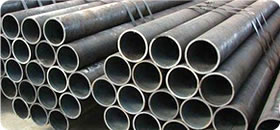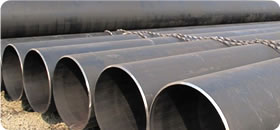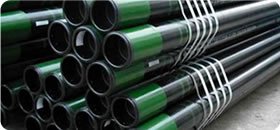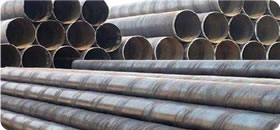How to prevent corrosion of oil pipe
Coating anti-corrosion is one of the most basic methods of steel pipe anti-corrosion, which is evenly and compactly applied on the surface of derusted metal pipe to isolate it from various corrosive media. More and more composite materials or composite structures are used for anticorrosive coating of steel pipes. These materials and structures should have good dielectric properties, physical properties, stable chemical properties and a wide temperature range.
1 outer wall anti-corrosion coating: the type and application conditions of the coating materials for the outer wall of the oil pipe.
2 inner wall anti-corrosion coating: the film applied on the inner wall of the pipe to prevent the corrosion in the oil pipe, reduce the friction resistance and increase the throughput. The commonly used coatings are amine cured epoxy resin and polyamide epoxy resin. The coating thickness is 0.038-0.2mm. In order to ensure that the coating is firmly bonded to the pipe wall, the inner wall of the oil pipe must be treated. Since the 1970s, it has been a trend to select the same materials for inner and outer wall coating, so that the coating can be carried out at the same time.
3 anti corrosion and heat preservation coating: in order to reduce the heat dissipation from the pipeline to the soil, a composite layer of heat preservation and anti-corrosion is added to the external of the pipeline on the medium and small-diameter heat transfer crude oil or fuel API 5L X52 Seamless Steel Oil Pipe. The commonly used thermal insulation material is rigid polyurethane foam, and the temperature is -185 ~ 95 degrees. This kind of material is soft in texture. In order to improve its strength, a layer of high-density polyethylene is applied outside the thermal insulation layer to form a composite material structure to prevent groundwater from infiltrating into the thermal insulation layer.
4. If the outer protective pipe is polyethylene pipe, it is unnecessary to do anti-corrosion
Polyethylene is odorless, nontoxic, and waxy in hand. It has excellent low temperature resistance, good chemical stability, and can withstand most of the acid and alkali erosion. It is insoluble in general solvents at room temperature, and has little water absorption. However, because it is a linear molecule, it can slowly dissolve in some organic solvents, without swelling, and has excellent electrical insulation performance.
previous_pageHow to prevent welded steel pipe from corrosion
next_pageHow to prevent Blowhole in spiral steel pipe weld




